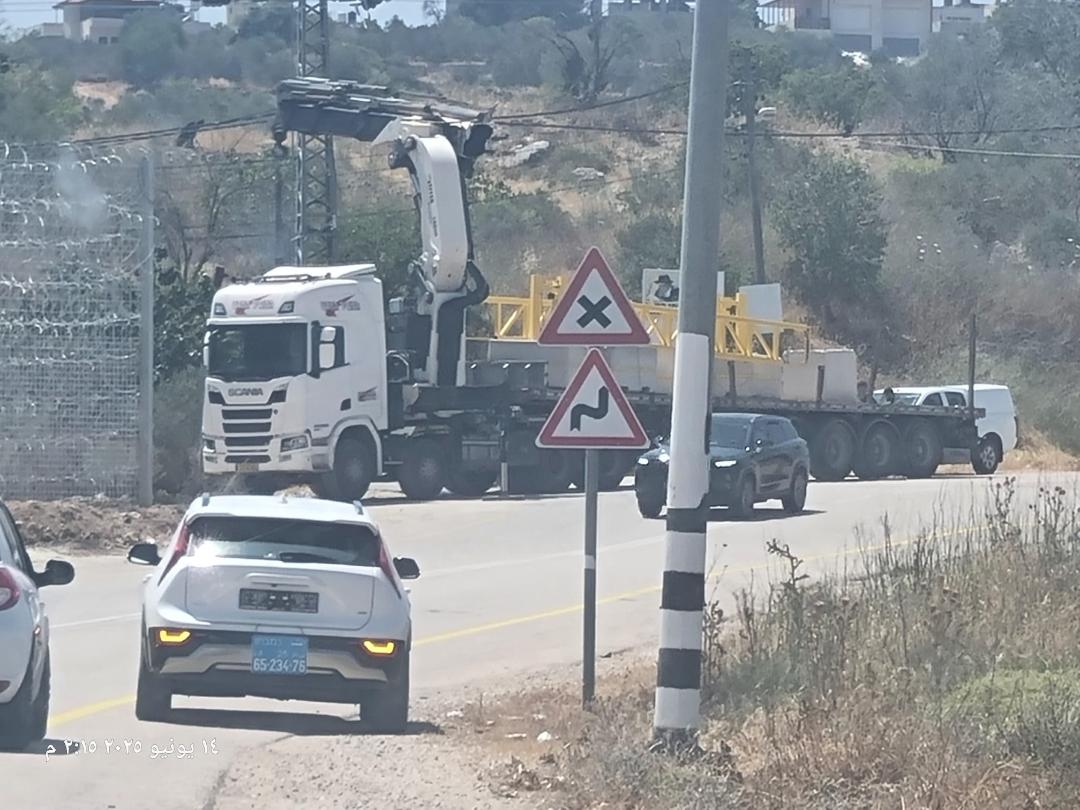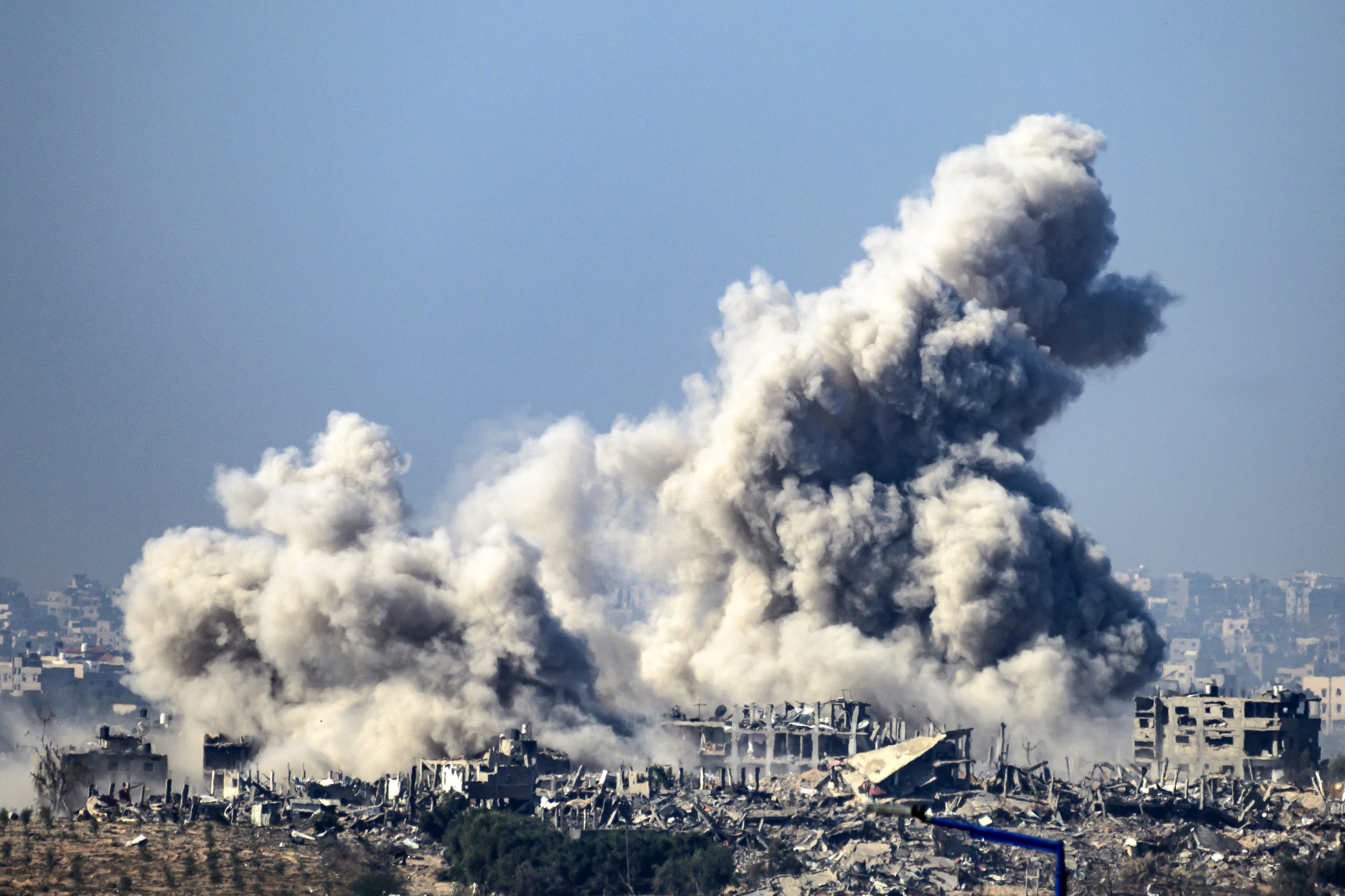NABLUS, November 4, 2015 (WAFA)
– Israeli forces Wednesday informed the family of a Palestinian prisoner
incarcerated in Israeli jails about their intention to demolish their home
located in the village of Beita, south of Nablus, according to local sources.
Ghassan Daghlas, who monitors
settlement activities in northern West Bank, said an army force broke into the
village and informed the family of 26-year-old Tamer Khdeir, about their
intention to demolish their home.
Soldiers also took measurements
of the house in preparation of the demolition.
On October 25, 2015, Khdeir was
stabbed and injured by Israeli settlers outside the illegal settlement of Ariel
in central West Bank.
Despite of this, and hours
after the incident, Israeli army and security forces detained him from his
village, claiming he had attempted to carry out a stabbing attack in the
settlement before the incident occurred.
In mid-October 2015, Israeli
Prime Minister Benjamin Netanyahu threatened to take strict measures against
Palestinians suspected of carrying out attacks on Israeli targets, as well as
to pursue those 'who stand behind' them.
'We are in the midst of a
wave of terror of knives, firebombs, stones and live fire,' Netanyahu told
reporters.
'These actions are mostly
not organized, but they are all the result of wild and untruthful incitement
from Hamas, from the Palestinian Authority, from several neighboring counties
and, no less, from the Islamic Movement in Israel.'
Israel resorts to punitively
demolish the family homes of any Palestinians – as means of deterrence -
accused of being involved in attacks against Israelis, a policy that Israel
does not use against Israeli settlers who were involved in fatal attacks
against Palestinians.
Al-Haq human rights group
slammed the punitive home demolition of Palestinians suspected of being
involved in attacks against Israelis, as a collective punishment and that in
accordance with humanitarian law and human rights law, it is assessed as a war
crime and a crime against humanity.
B’Tselem, an Israeli human
rights group, says: “The people who bear the brunt of the [punitive]
demolitions are relatives – including women, the elderly, and children – whom
Israel does not suspect of involvement in any offense.”
“In the vast majority of cases,
the person whose actions prompted the demolition was not even living in the
house at the time of the demolition,” adds the group.
“The official objective of the
house demolition policy is deterrence … yet the deterrent effect of house
demolitions has never been proven.”
It said that, “Since this
constitutes deliberate harm to innocents, it is clear that even if house
demolition had the desired deterrent effect, it would, nevertheless, remain
unlawful.”
Amnesty International, argued
that, the Israeli authorities’ claim that such demolitions are effective in
dissuading potential attackers “is entirely irrelevant in the eyes of
International humanitarian law, which places clear limits on the actions which
an occupying power may take in the name of security, and the absolute
prohibition on collective punishment is one of the most important of these
rules.”
“Collective punishment is never
permissible under any circumstances.”
Late 2014, The US State Department spokeswoman
Jen Psaki contended that such a move amounted to collective punishment and
would only heighten tensions in the region.
On July 31, suspected Jewish
extremists threw Molotov cocktails inside a Palestinian home in the village of
Duma, setting it ablaze. The arson attack killed toddler Ali Dawabsha, and
fatally wounded his parents.
Defense Minister Moshe Ya'alon
confirmed that Israeli security forces know who was behind the deadly arson
attack in Duma, however, no arrests had been made in order to avoid exposing
intelligence sources in court, reported media outlets.
'We know who is responsible,
but we will not expose those findings in order to protect our intelligence
sources,” said Ya’alon during a meeting
of the Likud youth branch in early September 2015.
In response, Member of Knesset
Aida Toma-Suleiman (Joint Arab List) said that, 'Would it even be possible to
think that the defense establishment would act the same way if a Jewish family
was murdered. Ya'alon's remarks confirm the forgiving attitude within the
system towards settler terrorism, which allows for the next murder,’ reported
the Israeli Ynet News.
There has been fluctuating
tension across the West Bank districts and Jerusalem since early October 2015,
mainly due to provocative visits by Jewish fanatics to the city’s al-Aqsa
Mosque compound, the third holiest place in Islam.
Since early October, Israeli
police and soldiers killed 74 Palestinians, while over 2,240 others have been
injured.
M.N./T.R.











